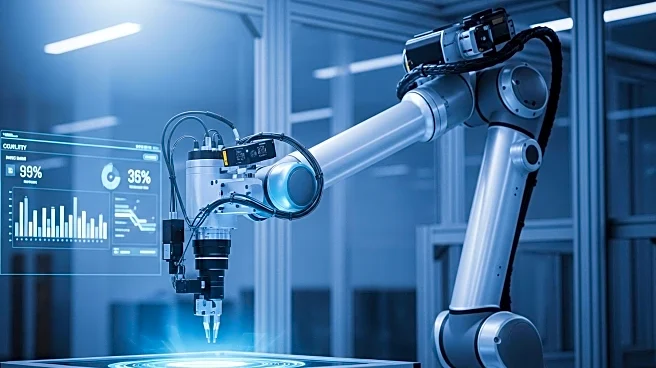What is the story about?
What's Happening?
Manufacturers are increasingly moving beyond traditional reactive quality management models to adopt more proactive and flexible systems. This shift is driven by the integration of artificial intelligence, evolving regulatory frameworks, and digital transformation. The focus is on building quality systems that predict issues rather than react to them, integrating seamlessly with production systems, and turning compliance data into competitive advantage. Manufacturers are also preparing for future regulatory changes by implementing robust data integrity controls and hybrid inspection models that combine remote and on-site elements.
Why It's Important?
The transformation in quality management is crucial for manufacturers to remain competitive in a rapidly evolving industry. By adopting proactive systems, manufacturers can enhance operational efficiency, reduce compliance costs, and improve product quality. The integration of AI and digital tools allows for faster innovation cycles without compromising quality standards. This shift not only helps manufacturers meet current regulatory requirements but also prepares them for future changes, ensuring long-term sustainability and growth in the industry.
What's Next?
Manufacturers are expected to continue investing in modern infrastructure and AI integration to further enhance their quality management systems. The upcoming ISO 9001 revision and changes in FDA and EMA expectations will likely drive further innovation in quality processes. Manufacturers will need to focus on building systems that are flexible enough to adapt to new regulations and technological advancements, ensuring they remain leaders in their respective industries.
Beyond the Headlines
The move towards proactive quality management systems highlights a broader trend of digital transformation in manufacturing. This shift not only impacts operational efficiency but also has ethical and cultural implications, as manufacturers must ensure responsible AI implementation and maintain human oversight in quality decisions. The long-term impact of these changes could redefine industry standards and practices, leading to a more sustainable and innovative manufacturing sector.
















